Our Chemicals & Waste experts have implemented more than 160 GEF-supported projects across more than 140 countries to date.
The UNEP GEF Chemicals and Waste Portfolio works with regions, technical UN agencies and other organizations to identify, develop and implement innovative global and regional programmes addressing new challenges.
The Portfolio looks to maximise the technical oversight of its work from within the UNEP family, whilst allowing external partners to execute at local level. This delivery through partnerships ensures that the skills and comparative advantages of each partner strengthen the work as a whole.
It also shows other successes. As of the 60th GEF Council in June 2021, the Portfolio value amounts to more than $260 million. The Portfolio has seen a 90% growth during GEF 6 (June 2014 – June 2018) and has continued to grow during GEF 7 (ending June 2022).
The Portfolio will continue to grow in the next years thanks to the submission of new projects and programmes whose concepts are now being developed.
Types of projects
Enabling Activities
These are small-scale activities that enable other – bigger - projects to act. Their value can reach $1 million. The Portfolio assists countries to produce National Implementation Plans, National Action Plans and Minamata Initial Assessments needed to meet their commitments under the Stockholm Convention on Persistent Organic Pollutants and the Minamata Convention on Mercury.
Medium-Sized Projects
Medium-Sized Projects are quickly approved by the GEF Secretariat and focus on a specific issue or context. Their value can be up to $2 million. They often introduce new ideas that have the potential to be scaled up.
Circularity in the electronics sector
The project "Circular Economy approaches for the electronics sector in Nigeria" is an example of the Portfolio intention to expand its action and tackle electronic waste.
Full-Sized Projects
Full Sized Projects are global, regional and multi-country projects that address chemicals and waste issues. Their value is usually more than $2 million. They aim at eliminating and reducing mercury uses, Persistent Organic Pollutants like the pesticide dichlorodiphenyltrichloroethane (DDT) and toxic compounds such as polychlorinated biphenyls (PCBs).
An end to DDT and mercury wastes
The project “Demonstration of Non-thermal Treatment of DDT Wastes in Central Asia” exemplifies the effort to improving national and regional capacity for the sound management of hazardous waste, including DDT and other POPs, in a region with legacy chemicals.
The project “Eliminate Mercury Use and Adequately Manage Mercury and Mercury Wastes in the Chlor Alkali Sector in Mexico” aims at reducing negative impacts of mercury and mercury wastes from the chlor-alkali sector on human health and the environment.
Programmes
Programmes are a longer-term and strategic arrangement of individual yet interlinked projects that aim at achieving large-scale impacts on the global environment. The Portfolio is implementing three UNEP GEF programmes:
-
The planetGOLD Programme contributes to the elimination of mercury in the Artisanal and Small-Scale Gold Mining sector;
-
The Med Programme aims to reduce levels of POPs and mercury in the Mediterranean Sea;
-
The ISLANDS Programme goal is to prevent the build-up of POPs and mercury materials and to manage and dispose of existing harmful chemicals and wastes across global Small Islands Developing States in the Atlantic Ocean, Caribbean Sea, Indian Ocean and Pacific Ocean regions.





